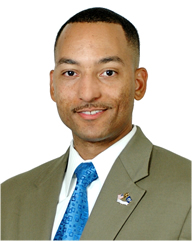The topic of this article may not meet Wikipedia's notability guideline for biographies .(March 2021) |
Tshaka Cunningham | |
|---|---|
 | |
| Alma mater | Princeton University Rockefeller University |
Tshaka Cunningham is the Chief Scientific Officer of Polaris Genomics, a company focused on diagnosis and treatment for individuals with behavioral health conditions, and Executive Director of the Faith Based Genetics Research Institute. [1] [2]